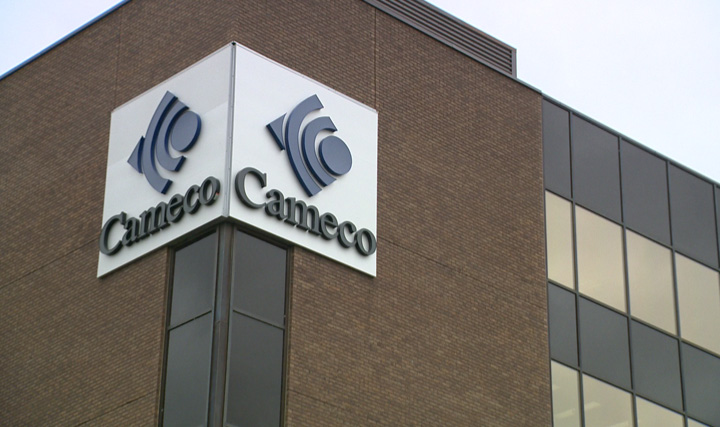SASKATOON – The group behind a billboard in Saskatoon targeting a major Canadian exporter says it hopes the sign gets results.

The sign asks Cameco to “pay up” and says the company owes hundreds of millions in taxes to Canadians.
Don Kossick of Saskatchewan Citizens for Tax Fairness says they went with a billboard in the hopes it will influence Cameco to not use offshore havens for its money.
Cameco (TSX:CCO) is in a dispute with the Canada Revenue Agency over hundreds of millions of dollars of corporate taxes.
The agency alleges a 17-year contract Cameco signed in 1999 with a subsidiary it set up in Switzerland was a tax dodge and the company owes up to $850 million in corporate taxes.

Get weekly money news
Cameco wouldn’t comment on the billboard, but Rob Gereghty, manager of media relations, said in an email that “Cameco has always, and continues to pay all taxes due under the laws of Canada and other jurisdictions where we conduct business.”
At issue is a deal Cameco made in 1999 to sell uranium to its wholly-owned Swiss subsidiary, Cameco Europe Ltd. Uranium prices were much lower at that time.
The allegation is that Cameco Europe then sold the uranium for more and recorded the profits in Switzerland, where the taxes are lower.
Cameco said it set up the offshore marketing subsidiary because most of its customers are located outside Canada.
However, most of its mines are in northern Saskatchewan. The province is one of the world’s largest uranium producers.
The case is expected to go to trial next fall, with a court decision expected in 2015.
“We wanted people to know that when companies don’t pay their fair share of taxes, it means others have to pay more and that we don’t have the revenue necessary to invest in education, health care, infrastructure and so on,” said Dennis Howlett, executive director of Canadian for Tax Fairness.

Comments